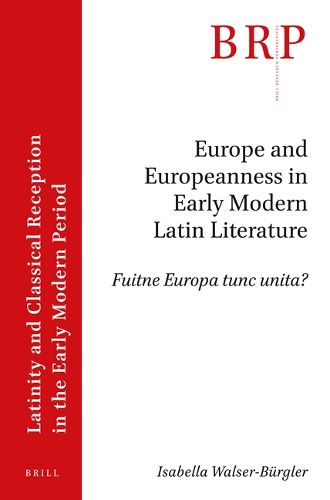Readings Newsletter
Become a Readings Member to make your shopping experience even easier.
Sign in or sign up for free!
You’re not far away from qualifying for FREE standard shipping within Australia
You’ve qualified for FREE standard shipping within Australia
The cart is loading…






The history of European integration goes back to the early modern centuries (c. 1400-1800), when Europeans tried to set themselves apart as a continental community with distinct political, religious, cultural, and social values in the face of hitherto unseen societal change and global awakening. The range of concepts and images ascribed to Europeanness in that respect is well documented in Neo-Latin literature, since Latin constituted the international lingua franca from the fifteenth to the eighteenth centuries. In Europe and Europeanness in Early Modern Latin Literature Isabella Walser-Burgler examines the most prominent concepts of Europe and European identity as expressed in Neo-Latin sources. It is aimed at both an interested general audience and a professional readership from the fields of Latin studies, early modern history, and the history of ideas.
$9.00 standard shipping within Australia
FREE standard shipping within Australia for orders over $100.00
Express & International shipping calculated at checkout
The history of European integration goes back to the early modern centuries (c. 1400-1800), when Europeans tried to set themselves apart as a continental community with distinct political, religious, cultural, and social values in the face of hitherto unseen societal change and global awakening. The range of concepts and images ascribed to Europeanness in that respect is well documented in Neo-Latin literature, since Latin constituted the international lingua franca from the fifteenth to the eighteenth centuries. In Europe and Europeanness in Early Modern Latin Literature Isabella Walser-Burgler examines the most prominent concepts of Europe and European identity as expressed in Neo-Latin sources. It is aimed at both an interested general audience and a professional readership from the fields of Latin studies, early modern history, and the history of ideas.